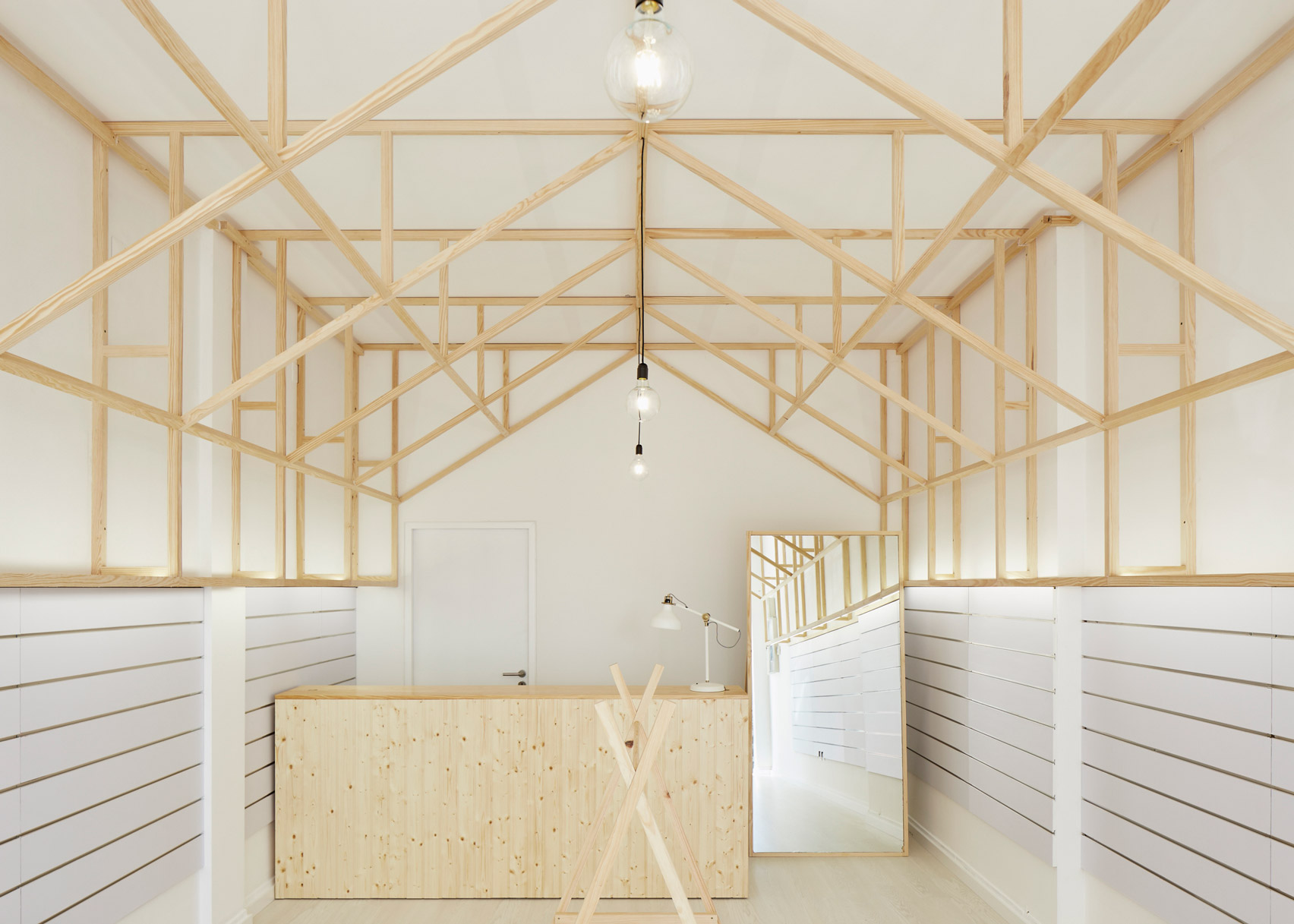Items are displayed upon a series of pine structures inside this accessories store in Ansião, Portugal.
Local architect Bruno Lucas Dias was tasked with designing a functional and flexible space for a women's accessories boutique in the Portuguese municipality.
Dias was first presented with an existing interior that he described as gloomy and dark. To counteract this, the architect opted for white-painted walls and stark lighting.
The space is decorated with a series of pine structures, including a house-shaped frame across the ceiling and a display unit towards the front of the store.
"The introduction of a wooden element in the upper level of the store transmits a character to the space," said Dias. "The functionality has resulted in an economic constructive solution – one material slatted in pine wood."
The floor-based wooden framework is on wheels to allow staff flexibility when presenting products. The simplicity of the structure means that elements can be added or taken away to create different displays.
Similar house-shaped structures feature inside a Melbourne restaurant where dining areas are housed beneath individual pitched roofs, and in a sushi restaurant on the Italian coast where visitors sit inside house-shaped booths based on the angled silhouettes of Tokyo's old market stalls.

